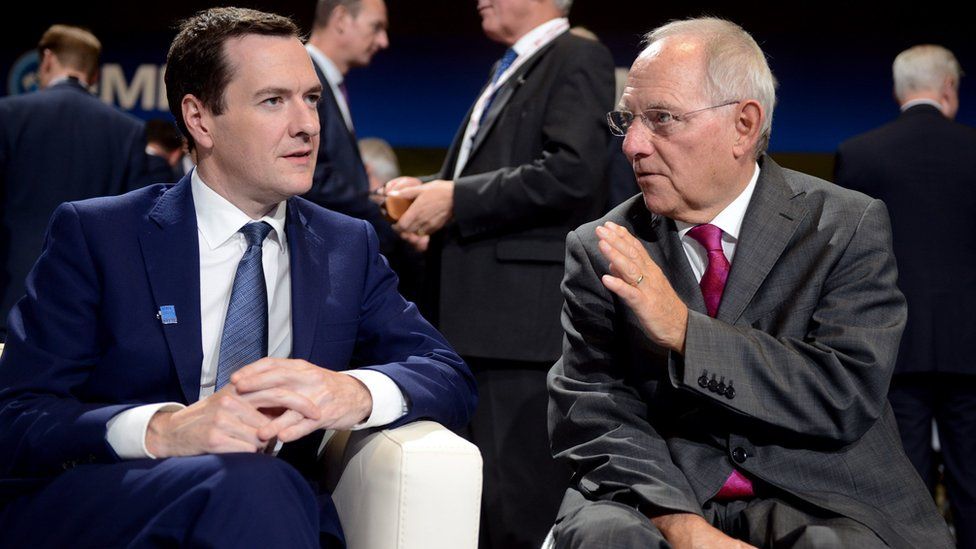Osborne: British and German economies 'heart of Europe'
- Published

The British and German economies are the "beating heart" of Europe, George Osborne has said as he heads to Berlin for talks on reforming the EU.
The Chancellor will meet German finance minister Wolfgang Schaeuble to set out more details of the UK's bid to renegotiate its EU membership.
Securing German backing is important for the success of British attempts to get changes in key areas.
David Cameron has already courted support from Chancellor Angela Merkel.
- Follow more on BBC Politics Live
Ahead of a private dinner with his German counterpart later on Monday, Mr Osborne said: "The UK and German economies are the beating heart of Europe, the engine for growth and jobs.
"Together we make the world's third-largest economy, behind only America and China, and since the crisis ended, we have generated two-thirds of EU growth.
"But the future holds challenges for our economies. We must cut debt and boost productivity. To do this, we need a strong EU, fit for today's challenges and working for the benefit of all 28 member states.
"The UK's reform and renegotiation plans aim to achieve this, which is why these talks with key partners in Europe are so important."
Business relations
On Tuesday, Mr Osborne will also visit a Siemens factory in the German capital and address an audience of business leaders at the annual conference of the BDI, the Federation of German Industries.
Volker Treier, deputy chief executive of the organisation, told the BBC that German business was "astonished" that the UK was planning a referendum on its EU membership.
David Cameron's renegotiation plans will be formally debated for the first time by the EU's 28 leaders at a summit in Brussels in mid-December.
The prime minister has said he wants to "quicken the pace" of talks and will write to EU officials later this month setting out the UK's broad demands in four areas:
- securing an optout from the principle of ever-closer union
- protecting the rights of countries outside the eurozone
- regaining more powers for national parliaments
- overhauling the existing welfare rules in relation to migration
Speaking earlier this month, European Commission President Jean-Claude Juncker suggested other European leaders were waiting for concrete proposals from the UK, saying it "takes two to tango".
Mr Cameron has said a referendum on the UK's future membership of the EU will take place before the end of 2017, but no actual date has been set.
- Published28 October 2015
- Published7 April 2015
- Published2 September 2015
- Published29 October 2015
- Published24 May 2015
- Published19 May 2015
- Published29 May 2015